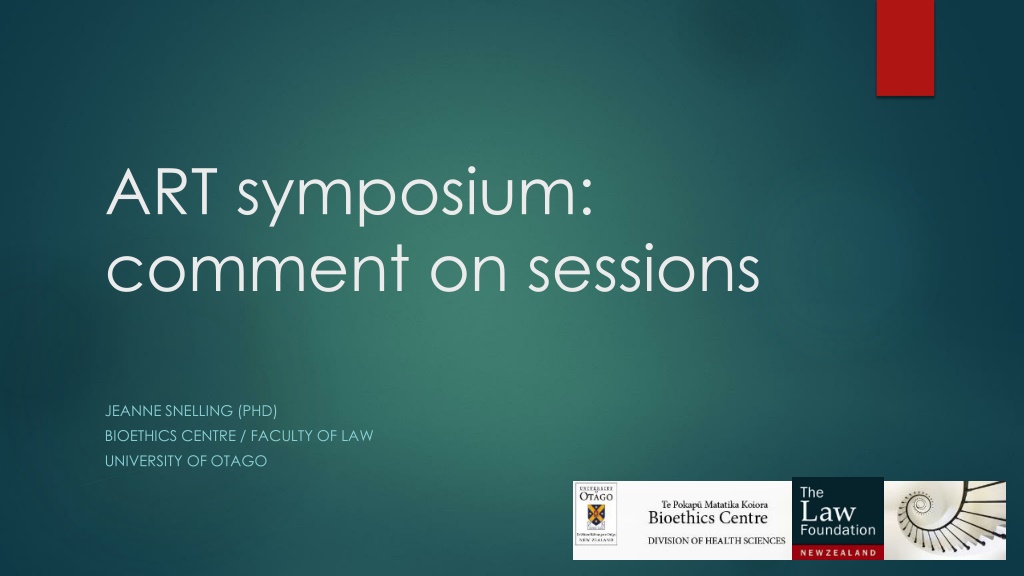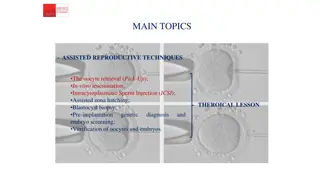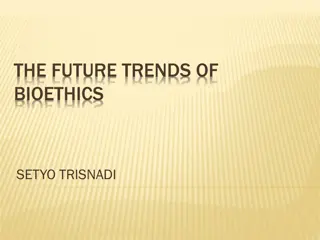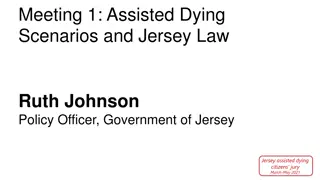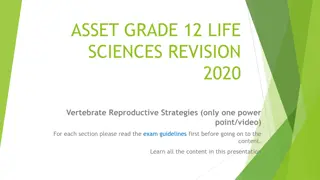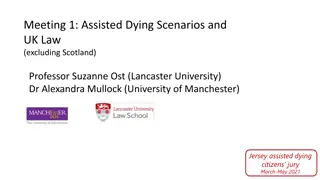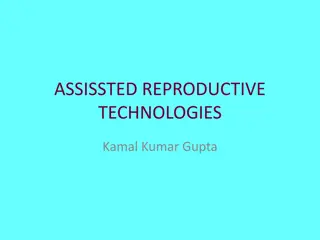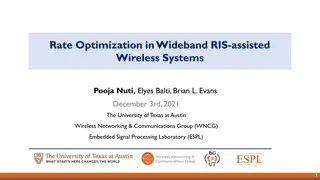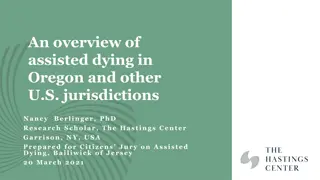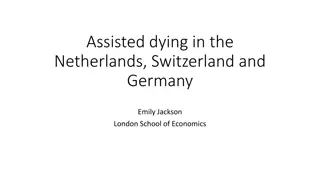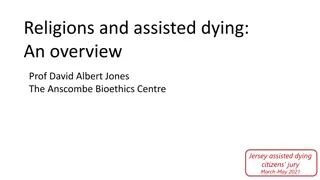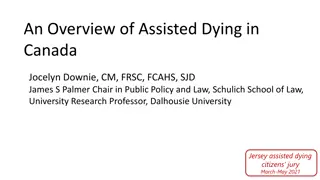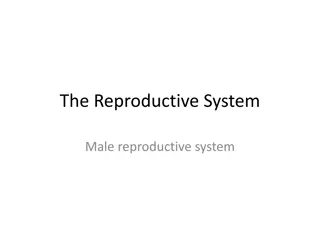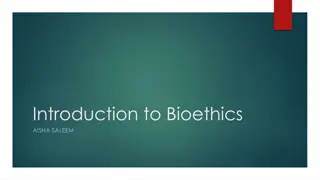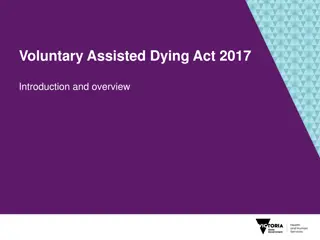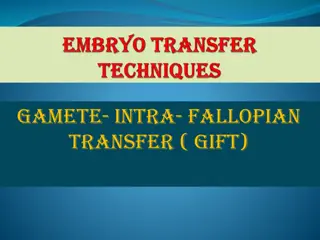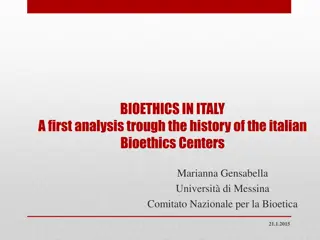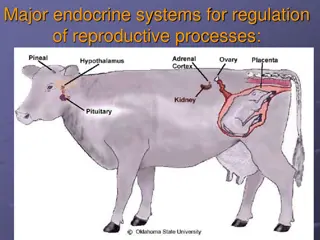Insights on Bioethics and Legal Challenges in Assisted Reproductive Technologies
Delve into discussions from the ART symposium sessions featuring Jeanne Snelling (PhD) from the Bioethics Centre, University of Otago. Explore topics such as regulatory challenges, the HART Act's suitability, procedural and substantive legitimacy, and the decision-making processes involving ACART. Learn about the complexities of ART regulations and the intersection of bioethics and law in embryo research and genetic testing advancements.
Download Presentation

Please find below an Image/Link to download the presentation.
The content on the website is provided AS IS for your information and personal use only. It may not be sold, licensed, or shared on other websites without obtaining consent from the author. Download presentation by click this link. If you encounter any issues during the download, it is possible that the publisher has removed the file from their server.
E N D
Presentation Transcript
ART symposium: comment on sessions JEANNE SNELLING (PHD) BIOETHICS CENTRE / FACULTY OF LAW UNIVERSITY OF OTAGO
Overview Gareth: embryos under the law: inconsistency, Embryo research restrictive by default : ACART advice 2007 Is the HART Act fit for purpose ? Colin: regulatory challenges: normative challenge: the ought question HART Act 2004 ? robust and flexible framework? guiding principles Preimplantation HLA tissue typing: Procedural legitimacy: process 2009-2014; Substantive legitimacy: regulatory position justified according to accepted principles?
Who decides ? 35. Functions of ACART 36. ACART may issue guidelines only after 37. & 38. ACART to provide specific advice ACART must, within timeframes agreed with the Minister, provide Minister with information, advice and if it thinks fit, recommendations on To issue guidelines & give advice to ECART keep under review a. 1a. Providing a reasonable opportunity for public submissions Provide advice to the Minister on aspects/issues of assisted reproductive procedures & research b. 2. When ACART issues guidelines it must research 37 ART including preimplantation selection 38 a. give copies to Minister, D- G of health, ECART and providers Requirement to consult (s 41) 3. Minister must present copy of guidelines to HoR as soon as practicable after receiving Before giving significant advice to Minister ACART must given interested parties/public a reasonable opportunity to make submissions 39 Before ACART issues guidelines to ECART, it must consult on the proposed guidelines with the Minister
Procedural legitimacy? Does it matter? HART Act principles Substantive legitimacy: policy position justifiable? not adopting advice/guidelines is endorsing a regulatory position (default) Purpose/principles of Act: secure the benefits : taking appropriate measures to protect & promote health, safety, dignity & rights robust & flexible framework Expectation: reasoned & transparent response to advice application of principles ongoing dialogue
Doorstep Next Generation Sequencing: Combines power of single gene mutation detection & complete 24-chromosome screening.
ART symposium: comment on sessions JEANNE SNELLING (PHD) BIOETHICS CENTRE / FACULTY OF LAW UNIVERSITY OF OTAGO
